75 years since Cardiff's 'worst night' of the blitz
- Published
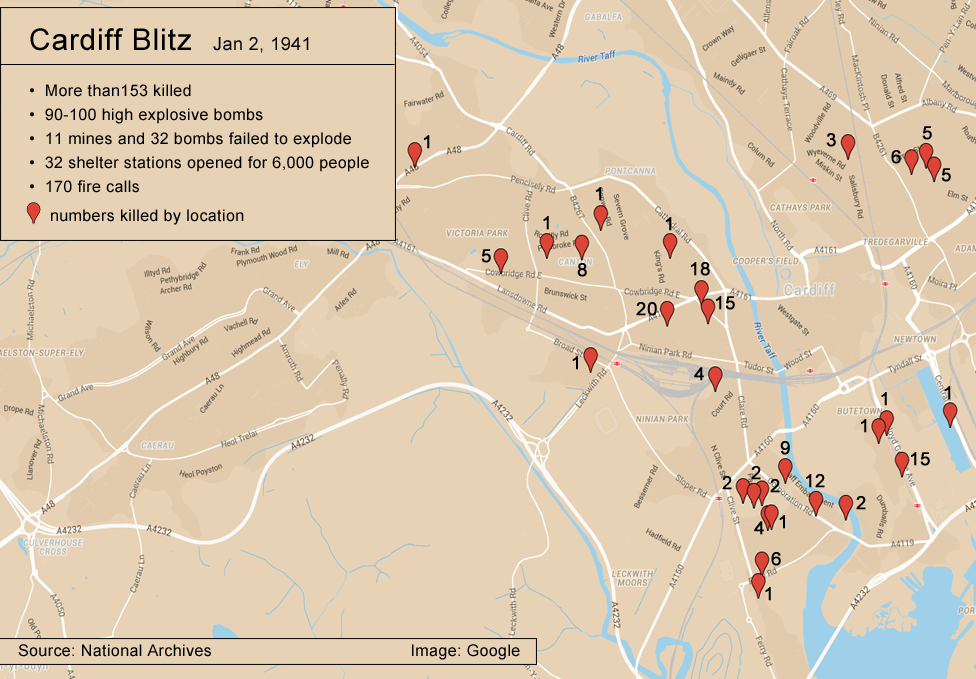
As Cardiff prepares to mark 75 years since the city suffered its worst night of bombing of World War Two, we take a look at how events unfolded that night and the numbers of people affected.
A vigil of prayer, thanksgiving and reconciliation was held on Sunday at Llandaff Cathedral, which was extensively damaged and had its roof torn off that night.
The place where that bomb fell, just outside in the grounds of the cathedral, is now a garden of remembrance for those who have died, and is marked by a stone memorial.

18:37 GMT, 2 January 1941
The air raid alert signal was received and almost immediately a large number of incendiary bombs were dropped on the central and western areas of Cardiff.
19:00
By this time, the fire service had received 15 calls. This number of calls had increased to 170 by the end of the night.
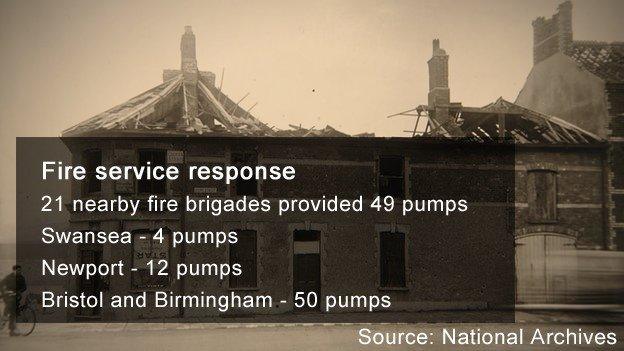
Shortly after 19:00, incendiary bombs were interspersed with high explosives and parachute mines. The bulk of these fell in the Docks area and on Great Western Railway Station.
19:16
The first requests for help for casualties were received from the central and western areas of the city at 19:16 and 19:28. The first call was to a communal shelter at a bakery in Grangetown; unofficially 32 people were believed to have been killed here alone.
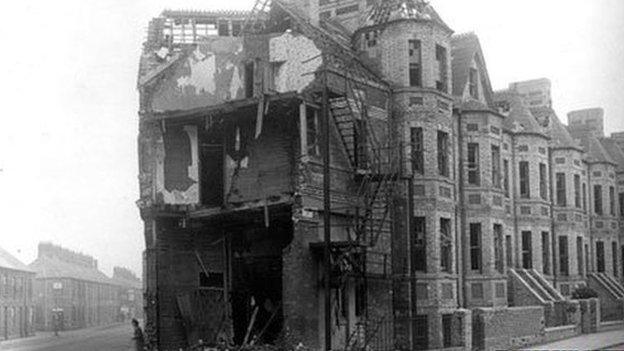
More than 60 people lost their lives in the first half hour of the raid.
20:00
Between 20:00 and 22:30, the north western and north eastern outskirts of the city were the focus of the bombing and a number of parachute mines were dropped, one of which badly damaged Llandaff Cathedral. No other historical buildings were damaged.
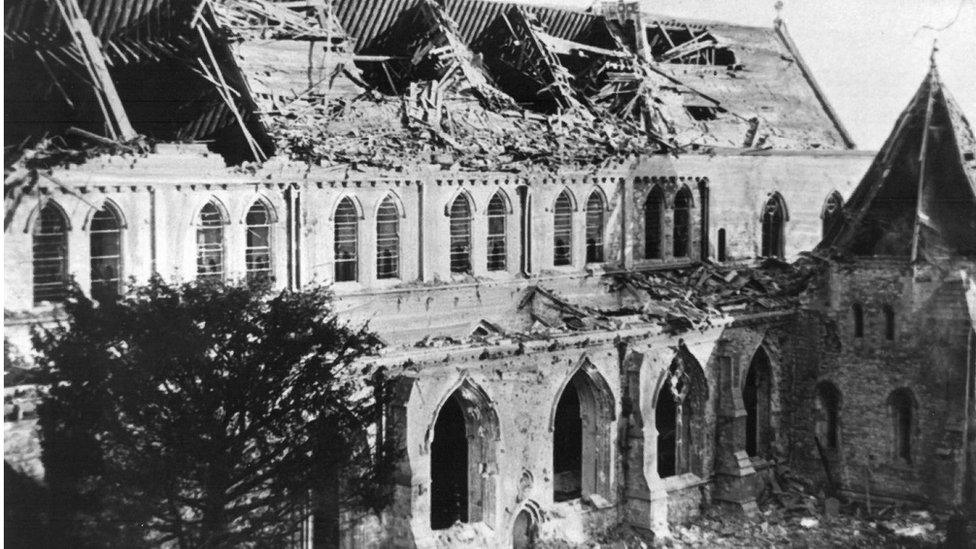
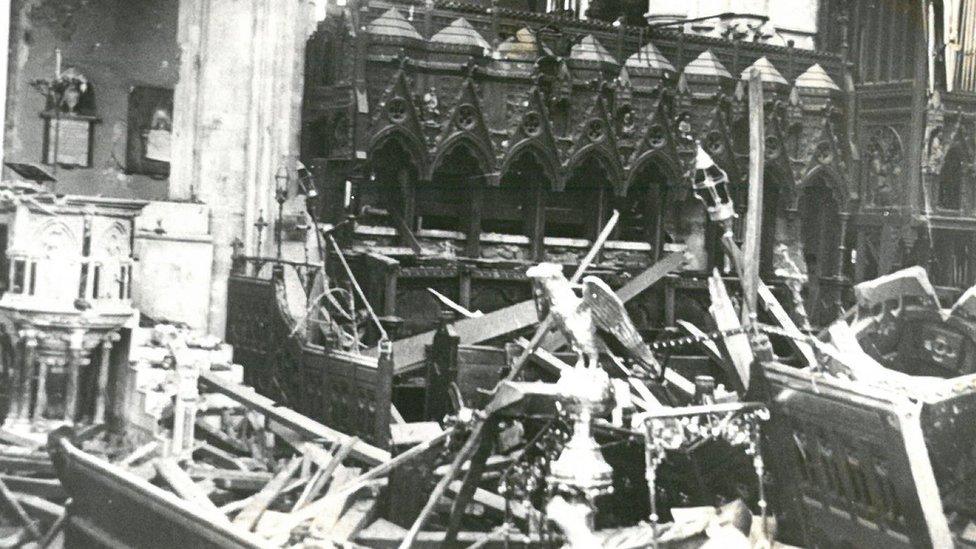
21:18
The first notification of casualties in the eastern part of the city was received.
21:45
A parachute mine fell on the Grangetown Gas Works, causing damage to three gasholders. A bomb had already fallen on the works at 19:00, but caused no damage.
The supply of gas to the three holders was cut off immediately and supplies to all consumers served by them was stopped at 02:00 on 3 January. Service was not fully restored until 8 January.
Midnight
Firefighters had put out the bulk of the fires by this time.
00:58, 3 January
The initial "raiders passed" signal came almost an hour into the following morning.
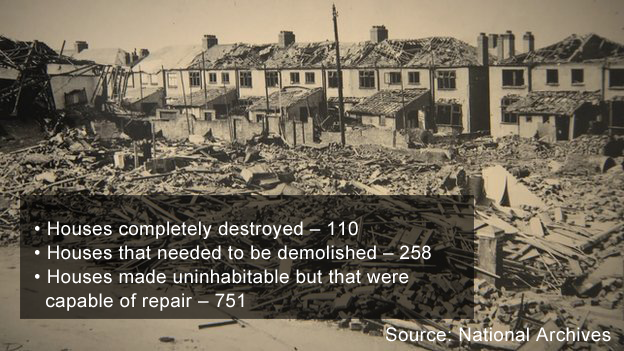
03:00
By this time, 32 shelter stations had been opened to accommodate the homeless and people evacuated from their houses because of unexploded bombs and mines. At its peak, nearly 6,000 people were accommodated at the shelters.
04:15
A second air raid alert was received.
04:35
A number of high explosive bombs were dropped in a residential area which had already been hit.
04:50
The second "raiders passed" signal was received.
06:00
By this time, seven mobile canteens were operating, visiting the shelters and serving tea, sandwiches and biscuits.
- Published2 September 2015

- Published8 May 2015
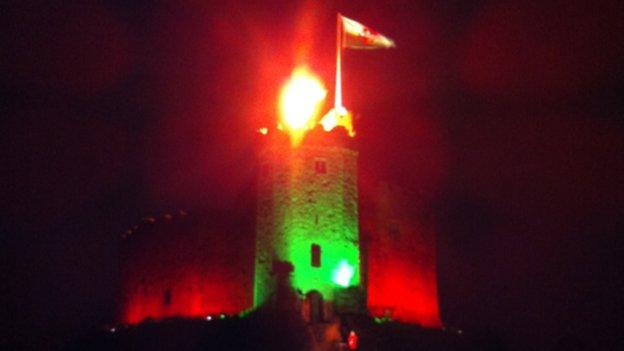
- Published2 January 2011